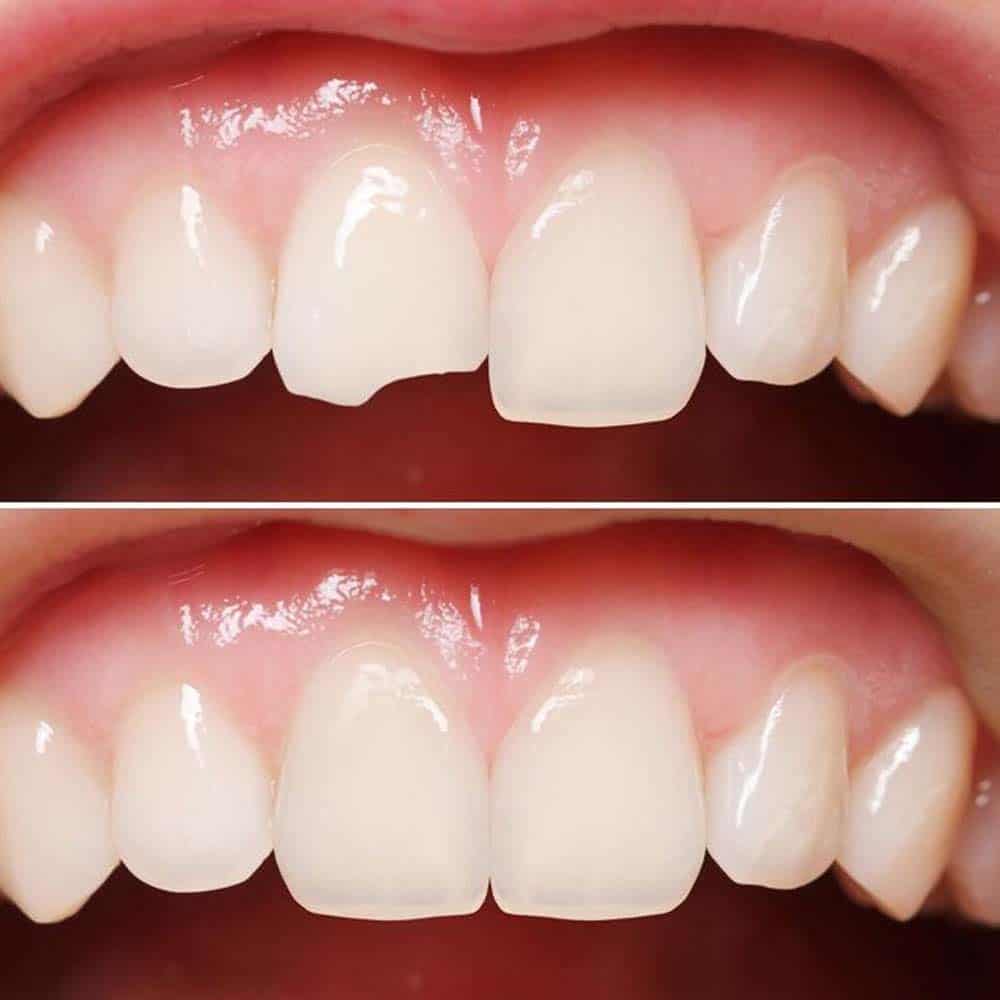There are few dental traumas worse than breaking a front tooth. A broken front tooth impairs your ability to eat and talk, and there’s the embarrassment that comes from missing such a key part of your smile.
The time just after breaking or losing a front tooth requires quick decisions made from solid information. Like a lot of medical issues, there are a lot of myths and old wives’ tales out there about what to do or not to do.
Let us help you separate fact from fiction so you can get on track toward restoring your smile quickly.
What’s the Status of Your Broken Front Tooth?
All of the information in this post applies to dental injuries that occur as a result of a trauma, not because of tooth decay. A broken front tooth sounds simple, but there are several varieties of trauma that a person can suffer. Each has its symptoms and treatment plan:
Loose Tooth
Did you know teeth can have concussions? A tooth concussion is another name for a loose tooth as a result of taking a hit to the mouth. It is typically accompanied by bleeding and mild to moderate pain.
If your tooth is still intact but a little loose, you might be feeling lucky because you were spared the worst. That might be true, but it does not mean you can sit back and relax. Depending on the strength of the hit, the tooth might have damage to the root or have been pushed into your jaw, neither of which are visible to you.
Because of this, it’s important to seek emergency dental treatment as soon as possible after the concussion occurs.
Broken Tooth
A broken tooth occurs when a substantial piece of the tooth is knocked out, often exposing its roots and pulp. This will look like a mixture of white, dark, and red areas. If you suffer a broken tooth, you will likely be in moderate to severe pain and will feel the need to see a dentist as soon as possible. Left untreated, broken teeth can result in severe pain, infection, swelling, and a potential medical emergency.
Knocked-Out Tooth (Tooth Avulsion)
A tooth that’s been completely knocked out, also known as a dental avulsion, will result in the most bleeding of these three traumas. Much like any other wound, apply pressure to the area to stop the bleeding. Head for the emergency room if the bleeding does not stop within 30 minutes, or if you have a history of problems with clotting after an injury.
If you can find the tooth, place it in milk (or water or saliva if milk is not available) to preserve it until you can get to the dentist. Do not touch or attempt to scrub the tooth’s root.
Dental Emergency – What to Expect at the Dentist
In most situations, the dentist will take X-rays of the affected area to determine the severity of the situation, then create a treatment plan for temporary and permanent solutions based on the severity of the injury.
Each situation is different, but if the original tooth can be saved, the dentist will usually try to save it. If the front tooth is broken then it may be splinted to the teeth on either side to help keep it stable while it heals. For an avulsed tooth, the dentist may want to try to reinsert the tooth. If the tooth can be reinserted, this is the best-case scenario, however, expect a few follow-up appointments for the dentist to monitor the healing of the tooth.
If the broken front tooth cannot be saved, the doctor will discuss your options for short and long-term tooth replacement options. These may include a crown, bridge, implant, or partial denture.

